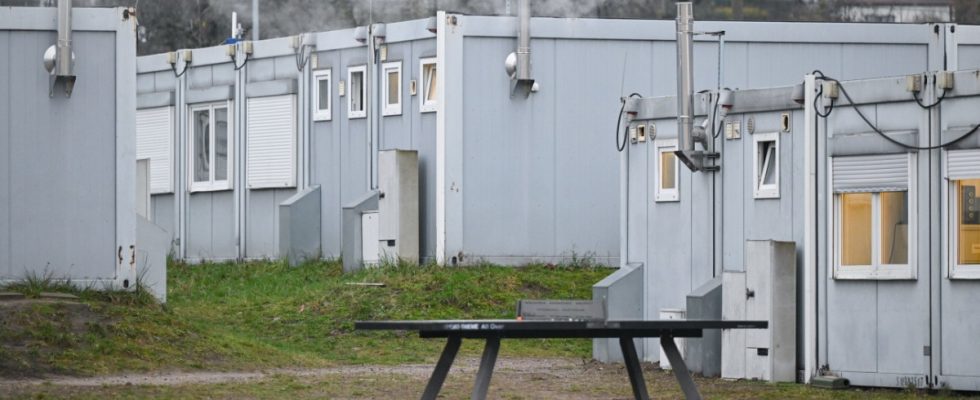The tug of war over the payment card for asylum seekers lasted several months. The federal states want them, and after some wrangling, the leaders of the federal government recently agreed to introduce the chip card quickly – and to regulate it in a federal law, despite the Greens’ major reservations. These days, however, it is clear that there is no agreement between the Greens, FDP and SPD yet, at least not in the Bundestag. The coalition is divided again.
The renewed conflict does not come as a complete surprise. Strictly speaking, the federal government had not previously resolved the controversial points, but had only passed them on to Parliament as an examination order. Labor Minister Hubertus Heil (SPD) presented the parliamentary groups with a draft for a federal regulation, asking them to find some way. Because the Green group doesn’t want what the SPD and FDP want.
You cannot pay for the apartment with the chip card
Right from the start, she found it extremely difficult to come up with the plan to give asylum seekers hardly any cash, but rather a chip card that they could use to go shopping. The Greens do not reject this in principle, but they see many unresolved questions. Anyone who needs to pay for an apartment or electricity bills cannot do so using a chip card. This would make referrals to lawyers who are not on site impossible.
In view of the objections, the coalition partners are now starting to lose patience. Standstill in migration policy is neither desirable nor possible. “Actually, the issue of payment cards seemed to have already been finally clarified. I clearly expect that we will finally adopt it before Easter,” said SPD parliamentary group vice-president Dirk Wiese South German newspaper. Only recently, Chancellor Olaf Scholz (SPD) made it clear to his Vice Chancellor Robert Habeck (Greens) that he expected the Greens to say yes to the payment card. Habeck agreed that the leaders of the coalition factions should have been involved. Leading Greens in Baden-Württemberg and Hesse also support the plans. They hope for relief for the municipalities.
However, there is resistance from the Bundestag Greens. The period during which asylum seekers should be provided with such a card is controversial. Because of pressure from the FDP, not only new arrivals should have to shop with a chip card instead of cash, i.e. if they live in an initial reception facility. According to the plan, municipalities could give those seeking protection a card instead of cash for more than three years. This could make everyday life much more difficult. The Greens see this as an attempt to further expand the application rules.
The whereabouts of refugees should become more transparent
A tightening of the Asylum Seekers Benefits Act was recently passed. After that, those seeking protection will only receive the reduced payments for asylum seekers for significantly longer than before: 36 months instead of the previous 18. During this time, i.e. for three years, they will not receive any citizen’s benefit – and only basic health care. The payment card could now become mandatory even beyond this period, i.e. longer than 36 months. This would also affect tolerated people who have lived in Germany for a long time and are actually asked to integrate, find jobs or live in their own apartments. The Greens fear that this integration would then become more difficult.
Because an agreement is not in sight, Federal Social Minister Heil has asked the traffic light factions to examine how and for whom the payment card should be used. The parliamentary groups should agree on a so-called formulation aid, to which the cabinet recently made a few corrections.
It also needs to be clarified to which law the payment card regulations are docked. Because there should not be a separate bill for this. It would be conceivable to anchor the chip card in the so-called DÜV law, which is intended to accelerate the exchange of data between immigration authorities and benefit authorities. This law should also make the whereabouts of refugees more transparent. The draft is ready, the DÜV law should actually go to parliament next week. It remains to be seen whether this will work. The topic of payment cards has not yet appeared on the agenda published by the Bundestag on Friday for the coming week in which the plenary session meets.

